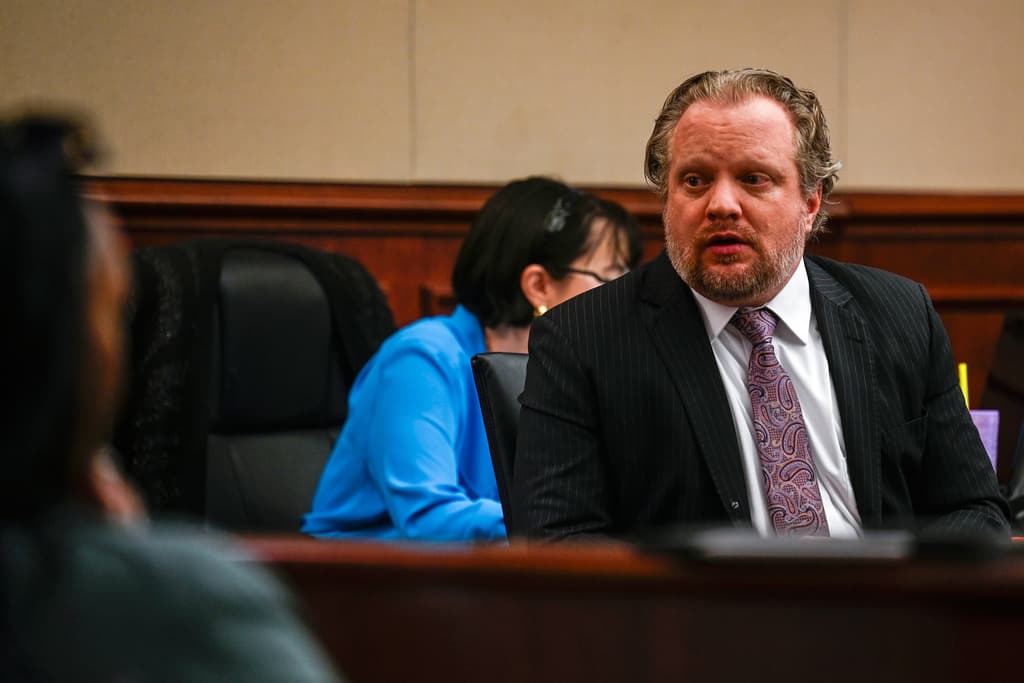
A grand jury in Clear Creek County absolved two sheriff’s deputies of wrongdoing in the May shooting of a mentally ill man.
But in one of the first tangible results of law enforcement reform legislation passed in Colorado, the jurors also recommended additional training for deputies and better access to mental health treatment for Clear Creek residents.
Bruce Brown, the district attorney for the 5th Judicial District, including Clear Creek, asked a grand jury to decide whether two deputies should be charged with a crime in the May 9 shooting of Darrin Patterson, 57. Patterson lived in Idaho Springs and was well known to local police for his frequent, paranoid calls to 911.
In a report issued Aug. 6 but just made public on Friday, the grand jury found that deputies were justified in using deadly force against Patterson after he led them on a chase at high and slow speeds, before setting his own car on fire and pointing a handgun at one of the deputies.
But legislation passed in Colorado in the midst of a national reckoning over police tactics requires grand juries to issue a public report after considering charges against law enforcement officers. The Clear Creek jurors took the opportunity to make a point about the lack of mental health treatment that could have kept Patterson alive.
“The grand jury recommends to local governments in Clear Creek County that they identify mental health resources, whether in or outside the county, that can immediately be made available to law enforcement to assist those individuals in mental health crisis,” the report said.
“The grand jury is troubled by the repeated responses by the Idaho Springs Police Department, prior to the evening of May 9, 2020, and their repeated failure to take any affirmative steps to facilitate assistance to Darrin Patterson, a person obviously experiencing profound mental illness, which contributed to this unfortunate series of events.”
In a release accompanying the grand jury’s report, Brown said the grand jury addressed a glaring need in the mountain community.
“Grand jurors carefully reviewed evidence in determining that no officer should be charged, but recommended that change was needed to prevent this type of incident,” Brown said. “The grand jury’s recommendation that local government needs to expand Clear Creek County, a small rural community with scant mental health resources, enabling law enforcement officers an ability to refer people with mental health issues to treatment.
“An absence of resources contributed to this tragedy, and the question is whether officials can work together, step up and fill a glaring need to provide treatment to people who are suffering.”
On the afternoon before he was killed, Patterson called 911 to report he was being followed. An Idaho Springs officer responded, told Patterson he was delusional and threatened to “lock him up in the nut house,” according to the grand jury report.
Later that night, a second Idaho Springs officer, also familiar with Patterson, saw him driving erratically and tried to pull him over. When he refused to get out of his car, she radioed for assistance and two Clear Creek deputies responded. When Patterson then drove away, they chased him.
At one point they broke off the pursuit but were then ordered to stay with Patterson. By the time he stopped, he had set a blanket in the back of his car ablaze and had a handgun with him. When he pointed that at a deputy, both opened fire, hitting Patterson with six of the 30 rounds they combined to fire.
Patterson died at the scene. An autopsy found a high level of methamphetamine in his blood. A CPR News review of six years of law enforcement shootings in Colorado found that nearly half of those killed in those shootings had used methamphetamine before their deaths.
Paperwork found in the car indicated that Patterson had been previously hospitalized for mental health treatment.
The grand jury also recommended that the Clear Creek Sheriff’s Office review intergovernmental agreements and their impact on pursuit policies and provide additional training to deputies on when to give assistance to other departments, including pursuits.









